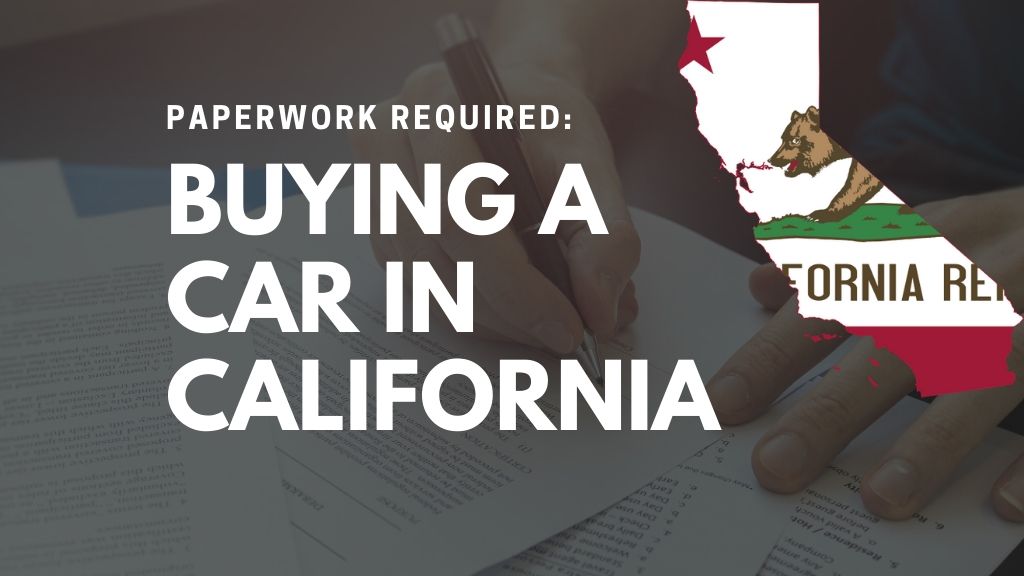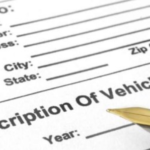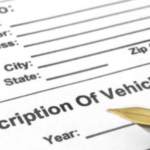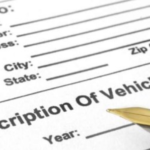Last Updated on June 6, 2020 by Jason Mason
When purchasing a vehicle in California, you are required to register that car in your name and apply for a title. When you buy a car from dealers, they normally handle this paperwork on your behalf. If you choose a private seller, you will be responsible for paperwork handling.
Title Transfers Fees
All applicable fees must be paid within 30 days of the sale, even if you have not obtained documents for registration and titling. The fees are as follows:
- $15 Title transfer (if registering the car as well).
- $20 certificate of Title only.
- $20 License plates plus additional $1 for reflectorized license plate fee.
Newer model requires you to pay more fees and taxes. You can use the DMV calculator to estimate the amount of fees for the car you are purchasing. You can also request personalized license plates.
Title Registration
Transferring the title into your name is a bit cheaper compared to registering your vehicle. You must get an estimate of the registration fee before vesting your local DMV office. There are many ways of doing so but the most preferred way is using a handy Vehicle Registration Fee Calculator. You can also request a specialized or personalized license plate, but you have to pay more for the services. For more information about title transferring in California, visit the DMV’S title and registration FAQs.
Smog Certification
If you are purchasing a vehicle that is more than 4 years old, you should ask the seller to provide you with proof of a current smog certification. If the vehicle’s registration was renewed within the past 90 days, this certification will not be required. Proof of smog certification will also not be required if you are obtaining the vehicle from a family member. If you purchase a vehicle that does not pass smog certification standards, the seller will be responsible for repair until it passes the set standards.
Car Insurance Requirements
California law requires you to purchase liability insurance to cover costs related to property damage or injuries resulting from an accident that you are at fault. The following are minimum limits of liability insurance that you must include in your policy:
- $15,000 for injury/death to one person
- $30,000 for injury/death to more than one person
- $5,000 for damage to property.
Other Forms of Financial Responsibility
Purchasing car insurance is the most preferred way of fulfilling your financial responsibility. However, there are other options that you can use. These include:
- A $35,000 cash deposit with the California DMV
- A Certificate of Self-Insurance issued by DMV
- A surety bond of $35,000 from California licensed company.
Proof of Insurance
You must show proof of insurance in order to register your car or renew your car registration. You can use an insurance card which is issued by your car insurance company when you purchase a policy from them. This card will have:
- Your car’s information such as make, model, year, safety rating and value
- Your name and that of other drivers covered under your policy
- Your policy’s expiration date.
Additionally, California car insurance company is required to submit your car insurance information to the DMV electronically. The CDMV can use this record to verify the status of your car insurance policy.
Buying from Out of State
If you buy a vehicle from out of state, you must register it in California and file the change of ownership within 20 days from the date of purchase. Make sure the car you buy from another state meets all the requirements for registration in California. The California Department of Motor Vehicles has a brochure with more information about nonresident vehicles registration guidelines and how to get started.
Nontransferable Registration
If you buy a car from another state without a title, you will be required to follow the nontransferable registration process. You will be required to submit:
- Most recent title from California or another state.
- California nontransferable registration card, if applicable.
If you are not the owner on the nontransferable registration form, you will need to submit:
- The most recent title signed by the previous owner(s).
- A bill of sale.
- A completed Form REG 343 (Application for Title or Registration).
In some cases, vehicle transfer will also require you to submit:
- Renewal fees.
- A transfer fee.
- Smog inspection.
- A motor vehicle bond ― if vehicle ownership is not fully proven with the documents submitted.
- An odometer disclosure statement.




